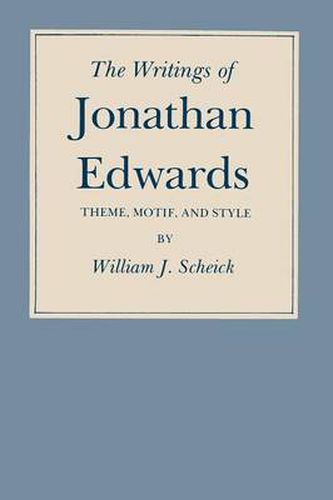Readings Newsletter
Become a Readings Member to make your shopping experience even easier.
Sign in or sign up for free!
You’re not far away from qualifying for FREE standard shipping within Australia
You’ve qualified for FREE standard shipping within Australia
The cart is loading…






This title is printed to order. This book may have been self-published. If so, we cannot guarantee the quality of the content. In the main most books will have gone through the editing process however some may not. We therefore suggest that you be aware of this before ordering this book. If in doubt check either the author or publisher’s details as we are unable to accept any returns unless they are faulty. Please contact us if you have any questions.
Puritan culture in many respects militated against artistic expression. Yet, like nature, art persisted, managing to gain a foothold in whatever crevices Puritan culture provided. Jonathan Edwards’s artistry, evident in his deliberate experiments in the management of language, grew out of his duty as a minister to communicate his sermons effectively. Emphasizing recurrent theological and artistic implications, The Writings of Jonathan Edwards focuses on the progressive interiorization of Edwards’s primary concerns. Underlying this development was Edwards’s desire to resolve the question of whether he was one of God’s elect, and his search for genuine selfhood or identity resulted in autobiographical dimensions in many of his public writings. In his quest for true identity, Edwards aligned himself with Puritan orthodoxy, and his regard for tradition is a consistent theme in his work from his earliest notes to his last treatises. Within Puritan tradition Edwards perceived a collective self, a divinely ordained continuity and integrity immune to the vicissitudes of time.
Scheick’s study will appeal to scholars and students of American literature, history, and culture as well as to those with a special interest in the relation between art and theology. As an explication of Edwards’s writings and of the development of his thought, the study will make Edwards more easily accessible to students of American literature.
$9.00 standard shipping within Australia
FREE standard shipping within Australia for orders over $100.00
Express & International shipping calculated at checkout
This title is printed to order. This book may have been self-published. If so, we cannot guarantee the quality of the content. In the main most books will have gone through the editing process however some may not. We therefore suggest that you be aware of this before ordering this book. If in doubt check either the author or publisher’s details as we are unable to accept any returns unless they are faulty. Please contact us if you have any questions.
Puritan culture in many respects militated against artistic expression. Yet, like nature, art persisted, managing to gain a foothold in whatever crevices Puritan culture provided. Jonathan Edwards’s artistry, evident in his deliberate experiments in the management of language, grew out of his duty as a minister to communicate his sermons effectively. Emphasizing recurrent theological and artistic implications, The Writings of Jonathan Edwards focuses on the progressive interiorization of Edwards’s primary concerns. Underlying this development was Edwards’s desire to resolve the question of whether he was one of God’s elect, and his search for genuine selfhood or identity resulted in autobiographical dimensions in many of his public writings. In his quest for true identity, Edwards aligned himself with Puritan orthodoxy, and his regard for tradition is a consistent theme in his work from his earliest notes to his last treatises. Within Puritan tradition Edwards perceived a collective self, a divinely ordained continuity and integrity immune to the vicissitudes of time.
Scheick’s study will appeal to scholars and students of American literature, history, and culture as well as to those with a special interest in the relation between art and theology. As an explication of Edwards’s writings and of the development of his thought, the study will make Edwards more easily accessible to students of American literature.